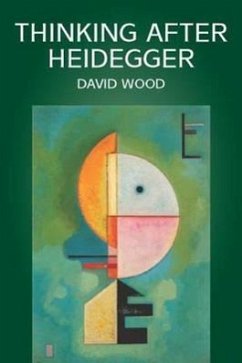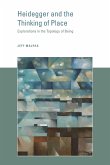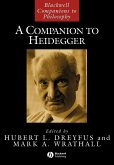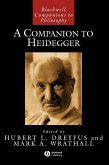In Thinking After Heidegger, David Wood takes up the challenge posed by Heidegger - that after the end of philosophy we need to learn to think. But what if we read Heidegger with the same respectful irreverence that he brought to reading the Greeks, Kant, Hegel, Husserl and the others? For Wood, it is Derrida's engagements with Heidegger that set the standard here - enacting a repetition through transformation and displacement. But Wood is not content to crown the new king. Instead he sets up a many-sided conversation between Heidegger, Hegel, Adorno, Nietzsche, Blanchot, Kierkegaard, Derrida and others. Derrida and deconstruction are first critically addressed and then drawn into the fundamental project of philosophical renewal, or renewal as philosophy. Thinking after Heidegger will be a valuable text for scholars and students of contemporary philosophy, literature and cultural studies.
Hinweis: Dieser Artikel kann nur an eine deutsche Lieferadresse ausgeliefert werden.
Hinweis: Dieser Artikel kann nur an eine deutsche Lieferadresse ausgeliefert werden.
David Wood writes a poineering passion and reflective patience worthy of Heidegger himself. This is the sort of book that give continental philosophy a good name. -- Richard Kearney, Boston College
'This is a fascinating book. Its appeal to those doing research on Heidegger, phenomenology and deconstruction will be strong, and it is likely to form a major reference point for future discussion. Stephen Mulhall, New College, Oxford
'This is a fascinating book. Its appeal to those doing research on Heidegger, phenomenology and deconstruction will be strong, and it is likely to form a major reference point for future discussion. Stephen Mulhall, New College, Oxford








